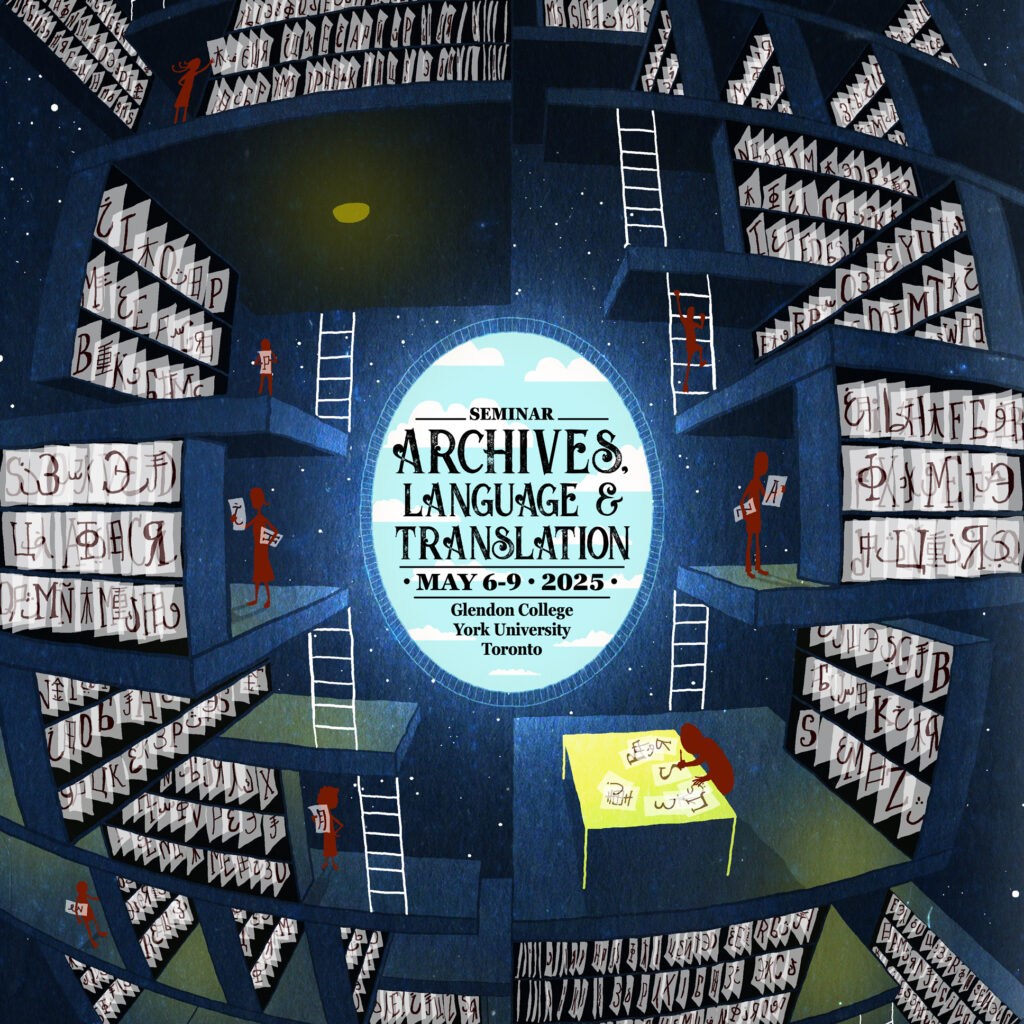
The seminars of the Centre for Research on Language and Culture Contact (CRLCC) are designed as research-oriented, hands-on interdisciplinary fora for scholars working on projects around a specific theme. This year we invite researchers working on projects that engage the conceptual and methodological intersections between archives, language, and translation.We will gather to discuss the relationships among these notions and their related practices of inquiry. The program will feature guest speakers with a demonstrated record of research on and practice with archives; it will also include visits to archives in Toronto, workshops on methods for archive-related work, digital humanities tools and practices, art and creative-practice presentations, and group sessions to discuss individual projects and share peer feedback.
The seminar will be organized around three streams as follows:
- Understanding the Archive. Guest presentations and discussions onconcepts and methodologies. This will be the opening stream of the seminar; participants will visit local archives and collections and explore their links with their own projects.
- Situating the Archive. Guest presentations and working sessions on region-specific projects. The seminar will have an emphasis on Canada, Latin America, and the Caribbean—work on other regions will also be included.
- Reading and Writing the Archive. Discussions on the intersection between archives and languages, translation, and discourse; this stream will emphasize pluriligual practices, narratives, archives media and forms, and circuits of circulation and dissemination.
Topics for discussion will include, among others: the specificity of physical and digital archives; practices for activating and animating archives; counter-archiving practices; diasporic archives; the relationship between archives, language, and languages; finding translation-related information in archives; transmedia and mixed media for archives; public and digital humanities; archive-related research processes; team building; collaborative and collective work; the experience of working with archival materials; and the scholarly, pedagogical, and social purpose of working with archives locally and transnationally today.
We invite scholars—including faculty, graduate students, and independent researchers—to apply. The main language of the seminar will be English, but proposals in Spanish, French, or Portuguese will also be considered. We welcome projects from various fields, such as literary studies, history, library and information science, book history, archive studies, manuscript studies, periodical studies, memory studies, translation and multilingual writing, art and media studies, and other fields and lines of inquiry. Submissions on creative work are also invited.
Applications shall be submitted by January 15, 2024 via this Google form,and includeproject title and detailed description, name, bio, and affiliation, relevant publications and links (if applicable), and a statement of motivation to participate. Invited participants will receive notice of acceptance in January 2025. The regular registration fee will be $350 CAD—with a sliding scale for faculty from Latin America and the Caribbean, independent scholars, and students. More information will be posted in our research seminar webpage as it becomes available. Note that, although there will be some guest presentations online, participants should plan to attend in person at York University (Glendon campus) in Toronto. For enquiries, please contact the project lead, Professor María Constanza Guzmán, at mguzman@glendon.yorku.ca (write “Archives seminar” in the subject line). This seminar follows a series of summer schools and research seminars organized by Glendon’s Research Group on Translation and Transcultural Contact and the Centre for Research on Language and Culture Contact. It is planned to complement the second CRLCC International Conference, which will be held immediately after (May 9-10, 2025). Seminar participants are invited to attend and participate in the conference as well.

